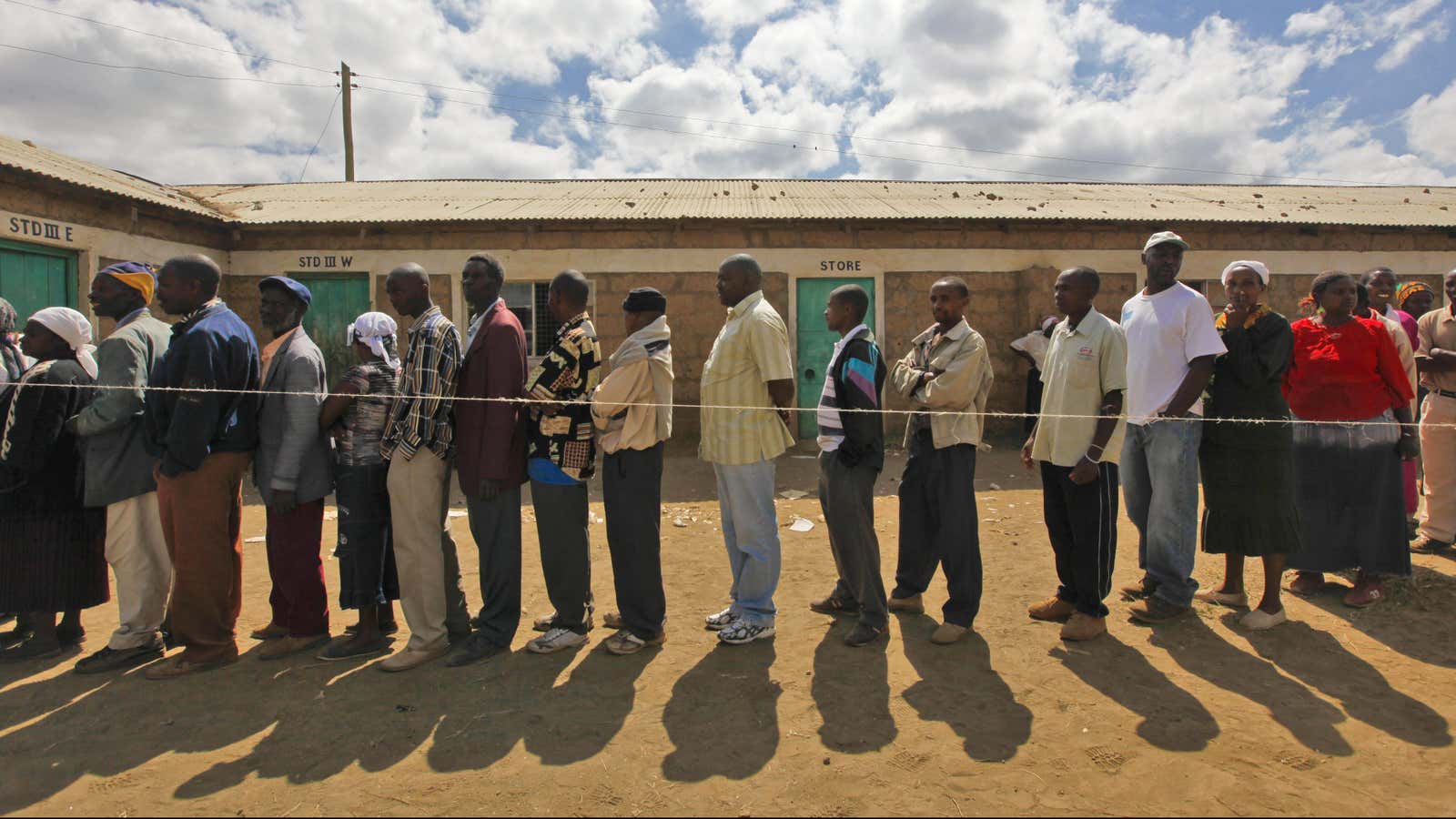Two days before Kenya goes to the polls in one of the most contested elections in the country’s history, election officials are scrambling to inspire confidence in the credibility of the vote.
The election commission said today that a quarter of voting stations won’t have network coverage to transmit the results of electronic voting machines. One of the main reasons for using the voting kits is that they transmit the results automatically, lowering the possibility of tampering.
“What happens with results from polling stations without 3G network? No big deal just a little delay,” the commission said on its Twitter account. Election reporting officials will have to move to areas with better coverage and use satellite phones.
There is some irony that Kenya’s elections may be delayed due to the limitations of its mobile communications technology. Over the last decade East Africa’s largest economy has positioned itself as a global leader in mobile technology thanks to the leadership of Safaricom’s M-Pesa mobile money platform and Nairobi has become one of Africa’s leading tech hubs.
On Aug 8, Kenyans will choose their next president, a race mainly between president Uhuru Kenyatta and former prime minister Raila Odinga, as well as more than a thousand local level representatives. Ahead of the vote, the capital Nairobi has emptied out as residents go to their ancestral homes in rural areas to vote. Many are leaving to avoid any potential violence. An American and a Canadian working on Odinga’s campaign were detained and deported this weekend.
In Kenya, where the results of the last two presidential races were both contested, the perception of a clean and fair election is as important as the reality of it. In 2007, a dispute over the election result led to mass violence across the country that killed at least 1,600 people. In Kenya’s last poll in 2013, electronic voting machines failed at the last minute, requiring a manual vote count that opposition leader Raila Odinga claimed was manipulated.
Kenya’s Independent Electoral and Boundaries Commission (IEBC), the target of on-and-off protests for much of the past year, has struggled to instill confidence. An audit revealed that the commission had included more than 1 million deceased Kenyans on the voting register. The electronic voting kits have only been tested in select locations, rather than across the country all at once as they will be used on election day. Last week, IEBC’s senior official in charge of the voting systems was found dead in a forest outside of Nairobi, apparently strangled and tortured.
The candidates themselves have done little to diffuse tension. For most of his campaign, Odinga has insisted that the only way he will lose is if the vote has been tampered with. ”The only way Jubilee can win this election is by rigging,” he said at a rally on Aug 6, his last full day of campaigning. ”They have no other way. We are more than confident that we are going to get a decisive victory on Tuesday.”
